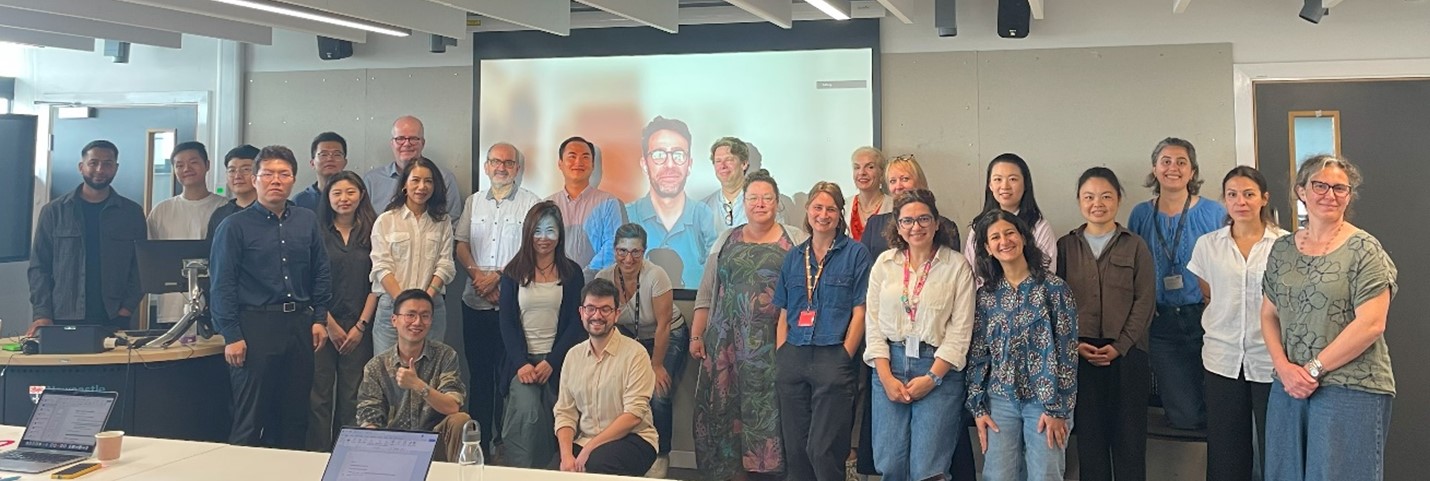International Workshop at Newcastle University Explores Uncomfortable Heritage and Its Reuse
24 July 2025
On 16–17 July 2025, Newcastle University’s Centre for Heritage and the Design School at Xi’an Jiaotong-Liverpool University (XJTLU), with support from the Confucius Institute at Newcastle University, co-hosted an international workshop on the theme of “Uncomfortable Heritage: Adaptive Reuse and New Narratives.” The event brought together scholars, practitioners, and PhD students to reflect on how buildings and sites with difficult pasts are being reimagined through conservation and adaptive reuse.
The workshop was opened by the organisers—Professor John Pendlebury (Newcastle), Dr Andrew Law (Newcastle), and Dr Yiwen Wang (XJTLU). Professor Pendlebury’s keynote speech introduced the conceptual framework of “uncomfortable heritage,” and invited participants to consider how different forms of emotional distance can influence the public’s engagement with heritage.
Over the two days, the workshop featured a diverse series of presentations from speakers based in China, the UK, and Europe. A number of presentations focused on Chinese case studies, offering valuable insights for international audiences. Dr Linda Shetabi (University of Hong Kong) shared the transformation of Tai Kwun in Hong Kong—from a colonial-era prison complex to a cultural and creative hub—raising questions about public access, creative freedom, and social inclusion.
Dr Yiwen Wang highlighted a different dimension of “uncomfortable heritage” through her analysis of repurposed slaughterhouses, including 1933 Shanghai – the former Shanghai Municipal Abattoir. She invited participants to consider how such transformations might help society confront our detachment from industrial food production and its ethical implications.
Further discussions on China included the presentation by Dr Bruce Davenport and Ms Gobi Guo (Newcastle University), which focused on rural Zhejiang Province. Their work explored how older residents are actively involved in sustaining local heritage, including the reuse of ancestral halls and teahouses. These grassroots efforts, shaped by community networks and intergenerational care, opened up new ways of thinking about responsibility and everyday heritage practice.
Complementing these were international examples such as the transformation of bullrings in Spain by Dr Plácido González Martínez (University of Seville), the reuse of prisons in the UK by Dr Sabrina Puddu (University of Cambridge) and Ms Elisabetta Tafaro (Northumbria University), and the adaptation of former asylums in Italy by Dr Francesca Lanz (Northumbria University). These examples revealed the complexities of repurposing spaces tied to pain, exclusion, or social discomfort. Presenters explored how such sites can provoke reflection, stimulate public dialogue, and foster new relationships between people and place, helping to situate Chinese experiences within a wider global dialogue.
The workshop concluded with a roundtable discussion, where participants exchanged reflections on the ethical, social, and emotional dimensions of reuse. Topics included commercialisation, heritage fatigue, and the importance of inclusive narratives. The final walking tour, led by Dr Loes Veldpaus, guided attendees through Newcastle’s urban fabric to reflect on how heritage is embedded in everyday spaces.
The organisers expressed their sincere gratitude to the Confucius Institute at Newcastle University for its support in fostering meaningful international exchange. The workshop not only deepened scholarly dialogue on heritage reuse but also strengthened academic collaboration between China and the UK.
